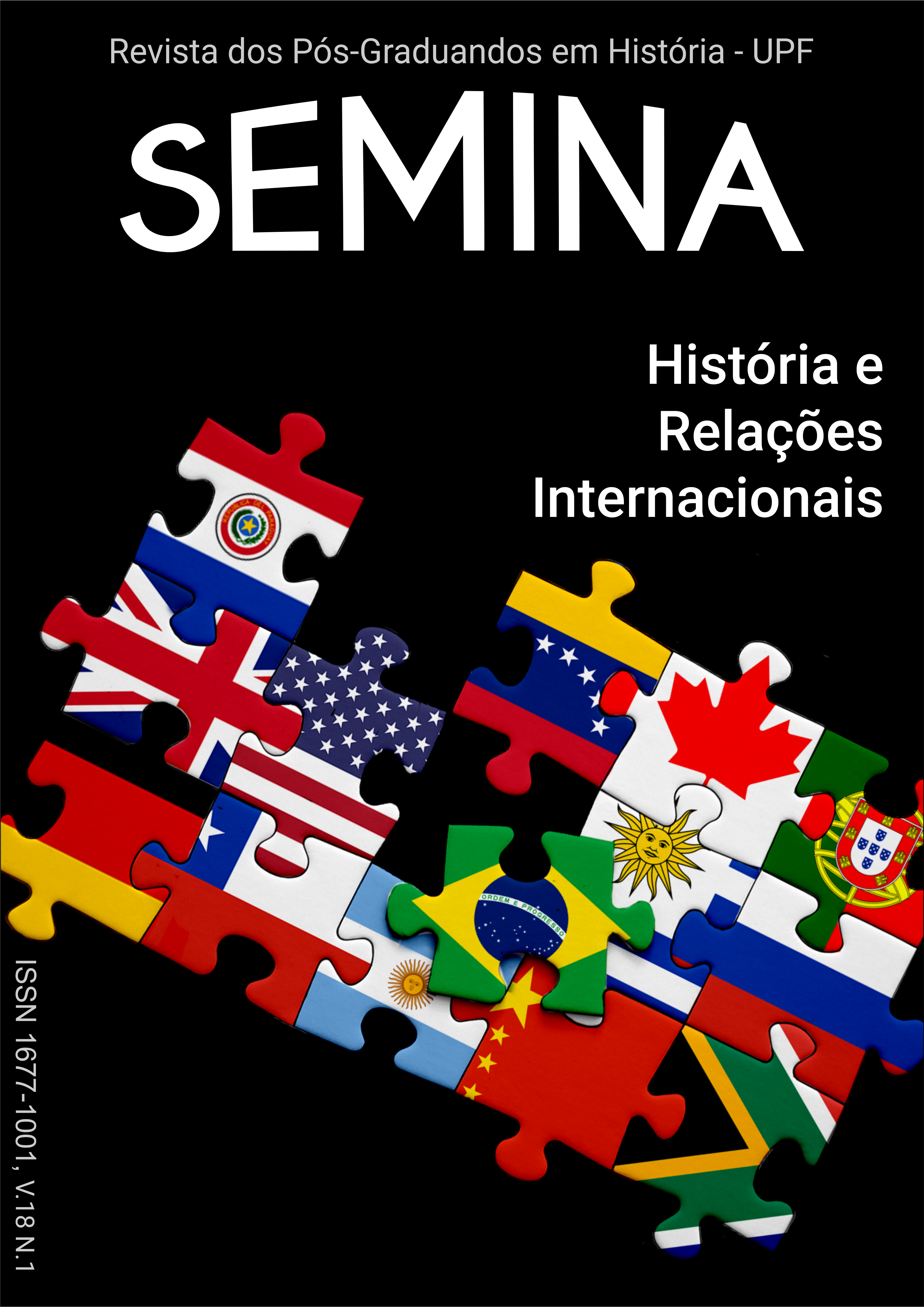Nesting the Condor Egg: The Brazilian “Chapter” of the Latin American Anticommunist Confederation, Co-Manager of the Southern Cone National Security Dictatorships (1971-1974)
Abstract
The article aims to outline, based on primary sources, a chronology of actions that lead to Operation Condor (the criminal plan of the South American dictatorships), formalized in Chile on December, 1975. Dealing with the repressive connections already operating since 1972 through the Latin American Anti-Communist Confederation (CAL), an asset of the World Anti-Communist League (WACL), the article tries to grasp those connections in the analysis of the Brazilian “chapter” of WACL/CAL, the Society of Social, Economic and Political Studies (SEPES). SEPES was associated to WACL and helped to set the CAL in 1972, organizing the II Congress of CAL in Rio de Janeiro (1974). Emphasizing how the military dictatorship were planning already the exchange of “subversives” one-year earlier of Condor, the article concludes, based on historiographical sources that Condor Prototype had organized, since 1973, the Transnational State Terrorism in South America.
Keywords: Latin American Anti-Communist Confederation (CAL). Operation Condo. Society of Social, Economic and Political Studies (SEPES).
Downloads
Downloads
Published
Issue
Section
License
Autores que publicam nesta revista concordam com os seguintes termos:
- Autores mantêm os direitos autorais e concedem à revista o direito de primeira publicação, com o trabalho simultaneamente licenciado sob a Licença Creative Commons Atribuição 4.0 Internacional – CC-BY que permitindo o compartilhamento do trabalho com reconhecimento da autoria do trabalho e publicação inicial nesta revista.
- Autores têm autorização para assumir contratos adicionais separadamente, para distribuição não-exclusiva da versão do trabalho publicada nesta revista (ex.: publicar em repositório institucional ou como capítulo de livro), com reconhecimento de autoria e publicação inicial nesta revista.
- Autores têm permissão e são estimulados a publicar e distribuir seu trabalho online (ex.: em repositórios institucionais ou na sua página pessoal), a qualquer ponto antes ou durante o processo editorial, já que isso pode gerar alterações produtivas, bem como aumentar o impacto e a citação do trabalho publicado, de acordo ainda com a democratização científica prevista pela Ciência Aberta.





